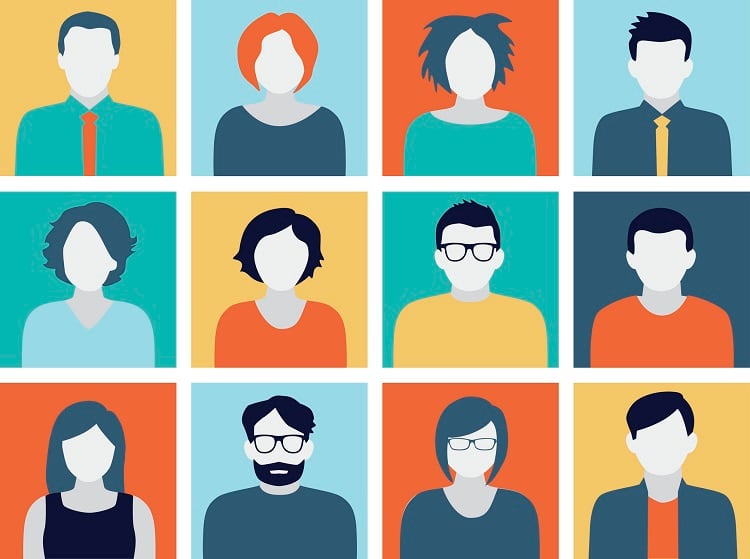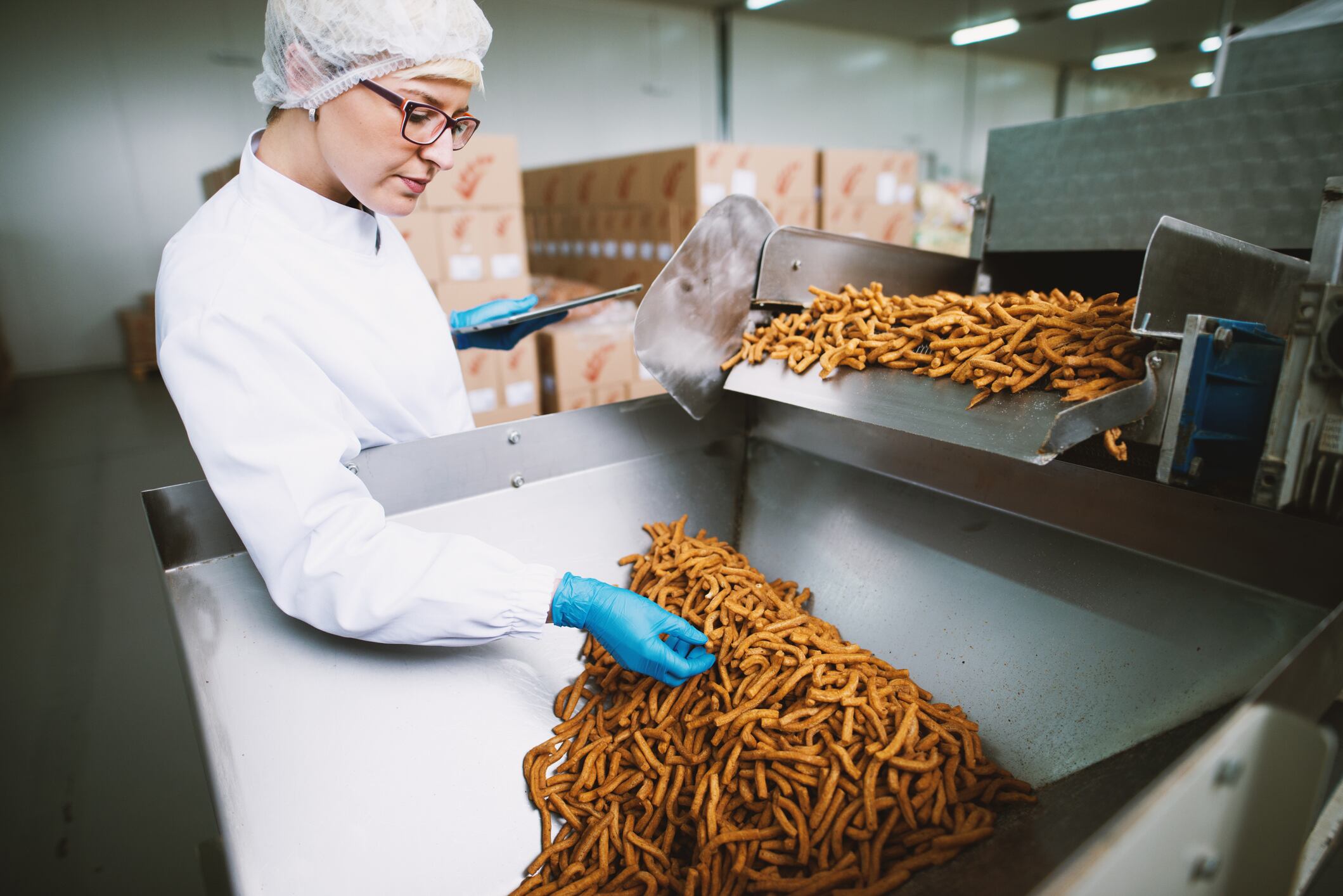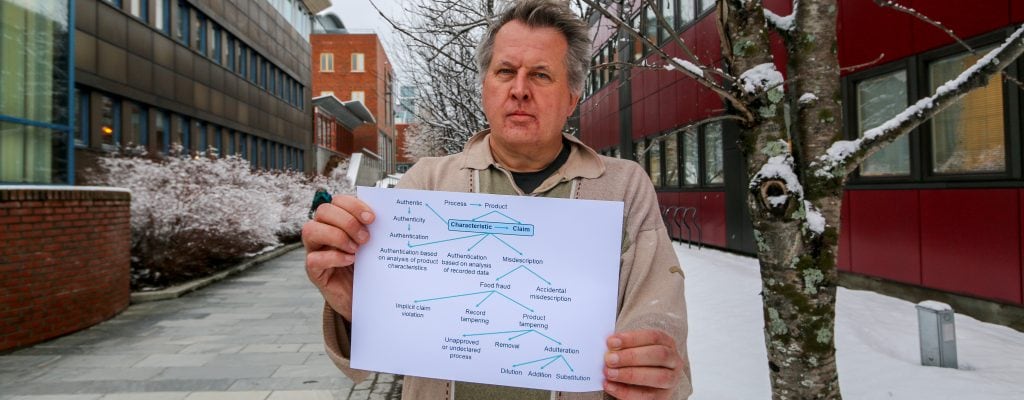Researchers at the Norwegian Institute of Food, Fisheries and Aquaculture (Nofima) have observed a shift in consumer demand for more plant-based and protein-rich foods.
Such demand, however, has not been observed equally across the board. According to researcher Dr Katja-Maria Prexl, who is working on the FoodProFuture project at Nofima, certain consumers are more willing to change their food habits – or indeed have low awareness and interest in the topic – than others.
“Environmental awareness and concerns about health, wellbeing and animal welfare are only some of the factors that are reshaping demand. Peoples’ values and preferences are steadily adapting to a new food reality,” noted Prexl.
However, as not all products or solutions are suitable to all demographics, Prexl - working closely with Nofima senior scientist Antje Gonera – has embarked on a project to help consumer groups be better understood.
“We often have difficulties to think like a specific target segment or type of consumer when we work in research projects or innovate in companies. But this demands thinking outside the box. This is where the use of personas can help.”
‘The best way to predict the future is to create it’
The researchers’ objective was to develop an approach that would help translate consumer and market insight, and research results, into new opportunities for the food industry, Prexl told FoodNavigator.
Andreas: the revolutionary modern urban hipster
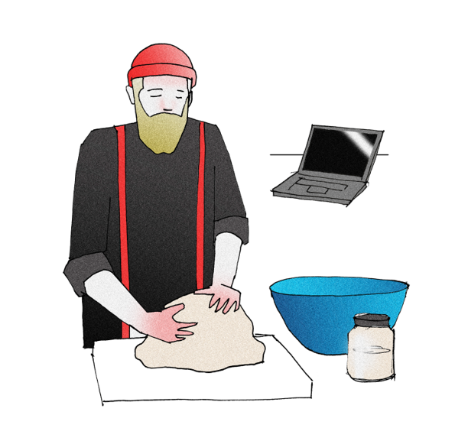
- Down to earth
- Adaptive entrepreneur
- Open-minded and into new developments
- Generation Y and Z
- Start-up Generation
“We think that the best way to predict the future is to create it.” The researchers’ personas therefore help the food industry to envision future needs, re-think their existing products and develop new concepts, Prexl elaborated.
“Each persona is a tangible and reliable artefact to inspire discussion for foresight and to foster co-creation together with the research team and stakeholders from the food industry.”
What is a persona?
Personas have their origin in user-centred design but are also used in marketing.
“A persona is a fictitious and specific representation of a group of target users,” Prexl explained. “It’s a character made to represent a group of people with similar habits, needs, goals, perspectives and values to help create a good understanding of the ‘problem space’ and the target group, and to work with them in conjunction with future scenarios.”
The FoodProFuture project used data from focus groups, expert interviews, observations, literature reviews and surveys, to develop a range of 10 personas that represent specific Norwegian consumer groups. They range from a vegan activist to an elderly and conservative couple, from a city hipster to a traditional modern family.
“The personas are stereotypes with very different values when it comes to food and life in general,” we were told. They were developed in the context of healthy and sustainable plant-based diets, and represent particular groups of people based on socioeconomic and cultural backgrounds, interests and behaviours, as well as perspectives and generations.
In simplistic terms, the 10 personas are:
The Soltvedt Family: the traditional classics
- Young traditional and conservative family (1-5 children) living in the country
- Eating traditional national Norwegian dishes for special occasions
- Generation Baby Boomer and X
- Andreas: the revolutionary modern urban hipster
- Berit and Knut: the couple living the traditional life
- Manfred: the truckdriver rocking the Norwegian roads
- The Sørum Family: the young, open-minded family into healthy hedonism
- Hallvard: the classical omniverse multi-performer
- The Soltvedt Family: the traditional classics
- Ramya: The multicultural flavour and diversifier
- Henrikke: the healthy and sporty urban detox-er
- Bjørn: the Norwegian athlete
- Thea: the young, radical vegan activist
Benefitting the food industry: ‘We often have difficulties thinking like a consumer type’
So what can the food and beverage industry learn from these personas? They can help show how different scenarios will impact different people, uncover ‘blind spots’, and broaden perspectives, according to Prexl.
“Challenging stakeholders to think in new ways about what the future may bring fosters action to shape the Norwegian future food production with a high degree on self-sufficiency.
“We often have difficulties thinking like a consumer type or specific target segment when we work in research projects or innovative companies. It demands thinking outside the box. This is where the use of personas can help the food industry to see different perspectives.”
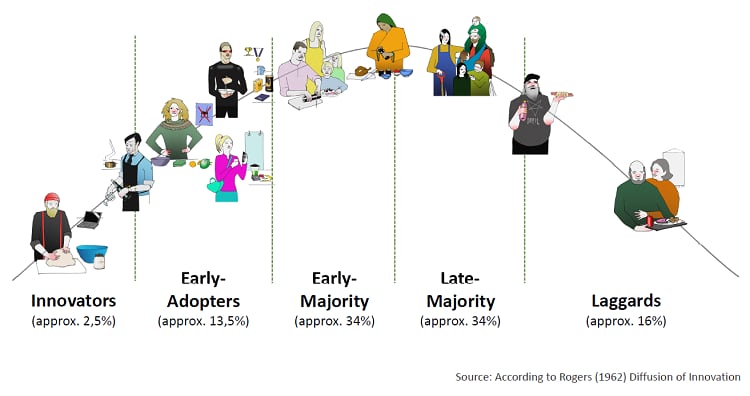
The innovation curve, for example, can piece together which persona is most likely to be an early adopter. In food, this may prompt brands to question why certain personas on the innovation curve are less willing to decrease or increase consumption of different kinds of meat, the researcher explained.
Thea: the young radical vegan activist
- Self confident
- Green expert - still going to school
- Extremely linked to social media
- Radical minded
- Generation Z
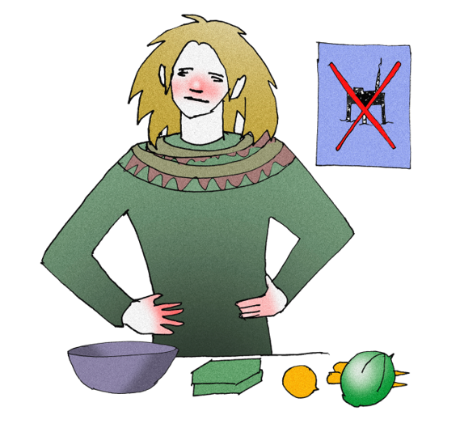
“This grey zone is very interesting as we need to understand why, how, what to do and [if] it is important to exemplify the values and attitudes of future Norwegian consumer groups and work with them to solve different challenges.
“This helps the industry to grow and develop a high-involvement culture and innovation opportunities in highly dynamic times.”
For Prexl, the personas are helping FoodProFuture and its project partners to ‘set the scene’ and better understand ‘the overall situation’ before making decisions regarding specific target groups.
“The insights and results can be used to adapt or create what is necessary to follow possible developments and provide a frame for changes and adaptations needed for society, or to provide support to make change possible. They help pave the way in identifying future signs indicating change.”


